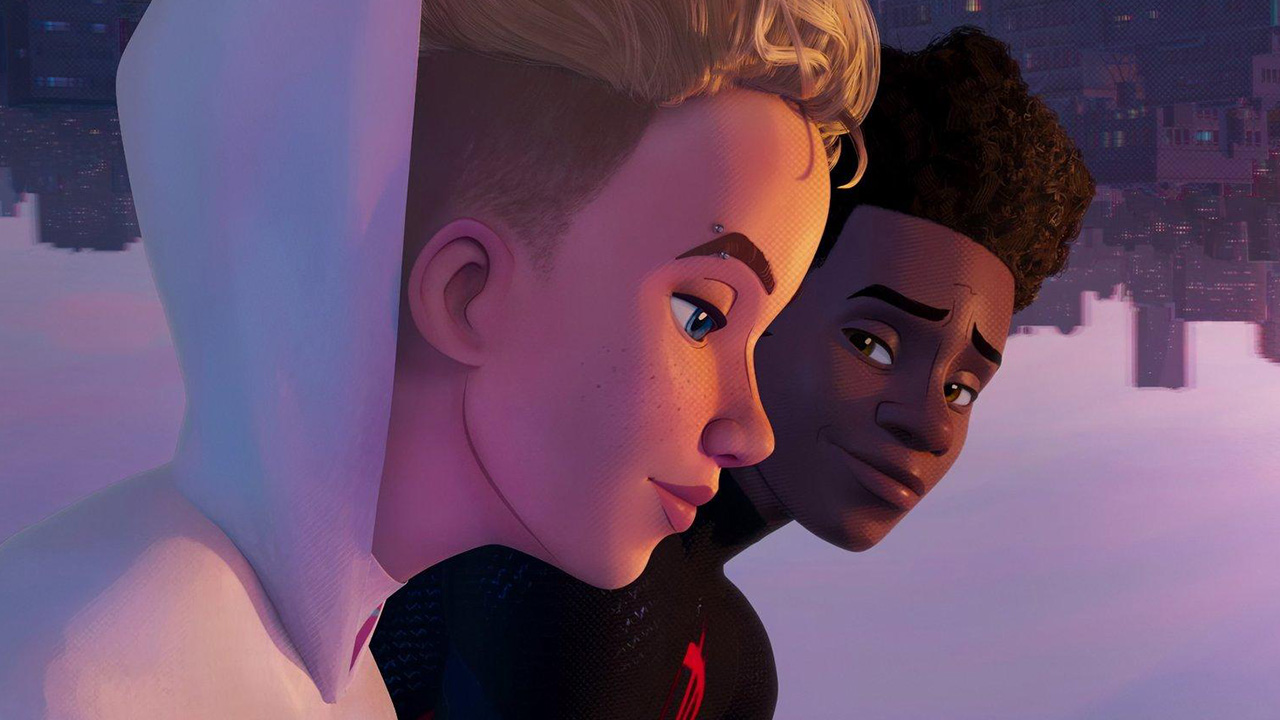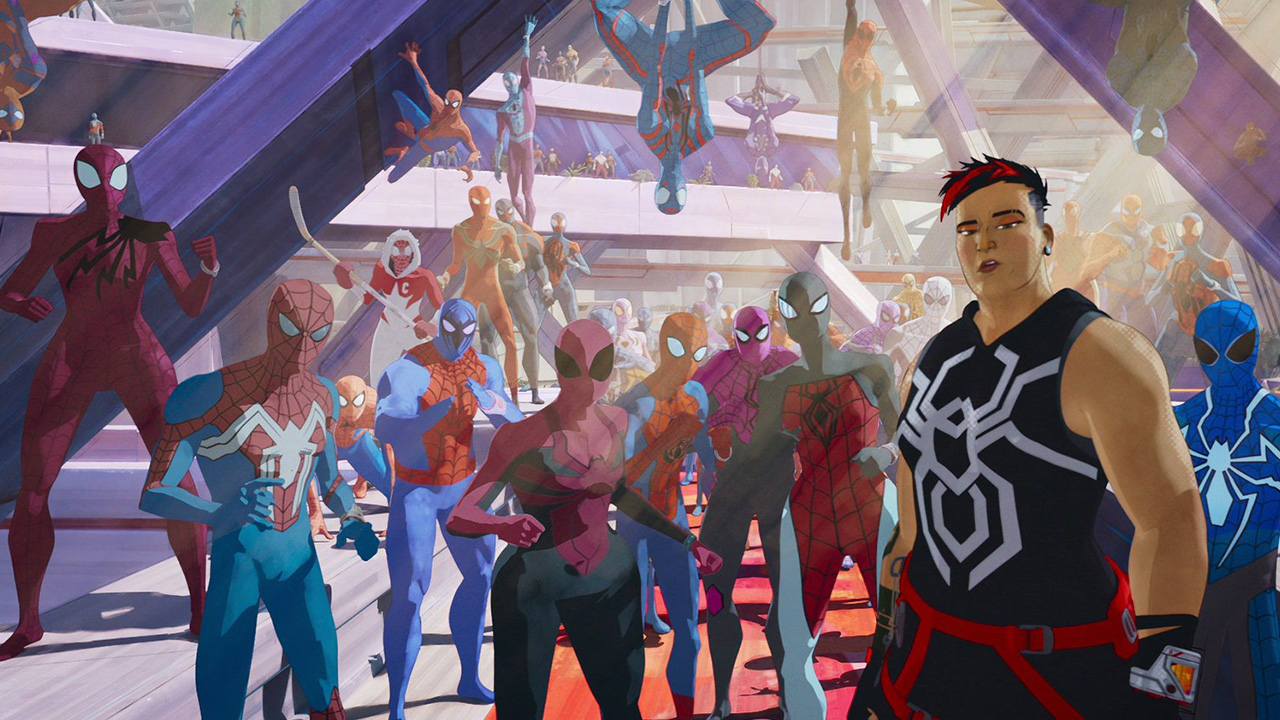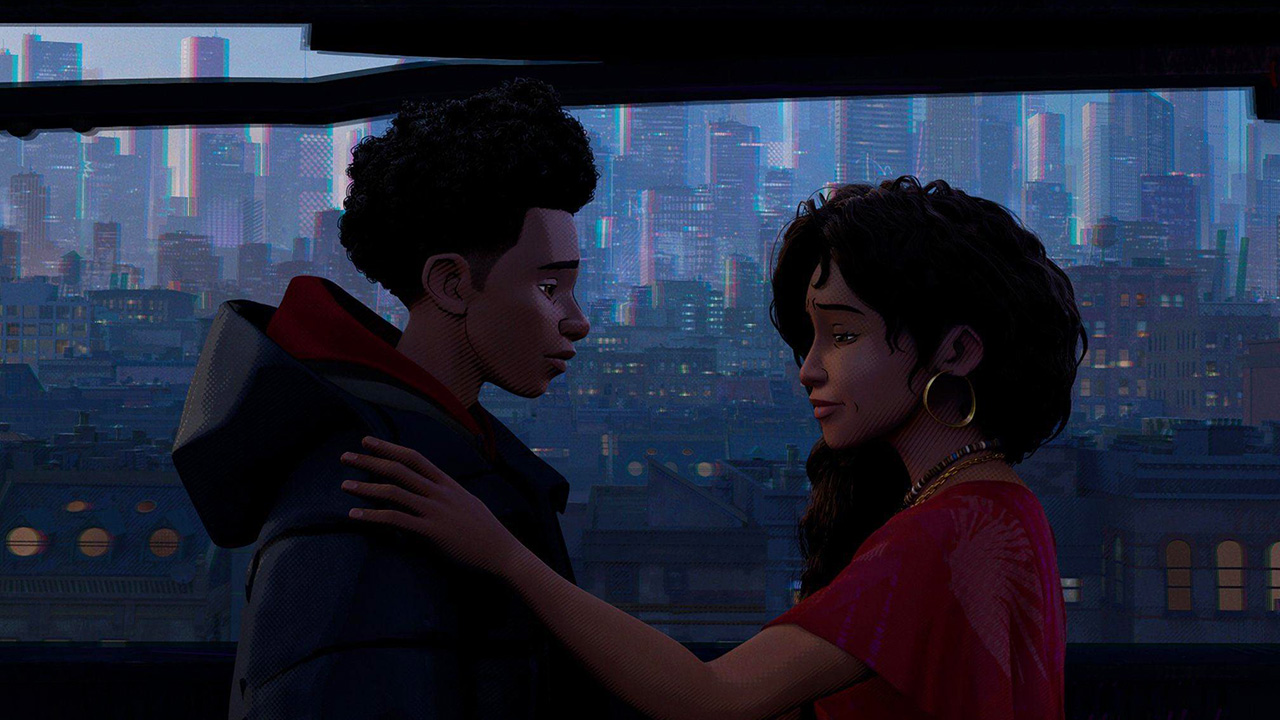Across the Spider-Verse is a gargantuan beast of a big-screen experience
Some may find it visually overstuffed when the action hits warp speed.

Miles Morales returns for Sony Animation’s superhero sequel Spider-Man: Across the Spider-Verse. Despite some detriment of excess, Liam Maguren praises the film as a gargantuan beast of a big-screen experience.
Spider-Man: Across the Spider-Verse
One thing’s for sure: Spider-Man: Across the Spider-Verse is the most animated movie to hit cinemas. Featuring almost 100 named characters, a record-breaking number of animators, and a massive runtime of 140 minutes (unheard of for an animated feature), this is a gargantuan beast of a big-screen experience. Inevitably, this sequel to Sony Animation Studio’s game-changing Oscar-winner revels in excess—to its benefit and detriment.
Into the Spider-Verse boldly crafted a pop art look to mimic its comic book origins then dared to add a black-and-white noir detective, an anime robot, and a Looney Tunes pig into the mix. But that all feels like dipped toes compared to the tidal wave of styles this film presents. The entire history of animation feels present, from the historic use of abstraction in jazz to the Yellow Submarine collage / Terry Gilliam cut-out techniques. When the much-advertised chase sequence with the Spider-Army happens, it feels like an appropriately chaotic illustration of timelines crashing into each other.
And yet, it’s the more modern approach to Gwen Stacy’s (Hailee Steinfeld) world that leaves the biggest impression. Adapting the Spider-Gwen comics’ dream-like illustrations to intoxicating effect, this visual depiction significantly aids the film’s wise decision to bring out the character’s backstory.
This is still Miles’ (Shameik Moore) story, but it’s a lot more about Miles and Gwen this time around. Over a year has passed with Miles growing more confident as Spider-Man, though he still feels the pressure of the mask and the loneliness of being The Only One in his universe. When Gwen reappears in his life, along with tales of her new multiverse adventures with other Spider-People, it plays out like a long-distance relationship reunited. That is, it’s incredibly sweet, until it gets awkward (cue that guy she tells Miles not to worry about).
When Miles finds himself at the Spider-HUB, the film leans even harder into the first film’s ideal that anyone can wear the mask. There’s a dazzling sequence introducing Pavitr Prabhakar (Karen Soni)— India’s Spider-Man, protector of Mumbattan city, and slammer of anyone who erroneously asks for “chai tea” or “naan bread.” There’s fellow standout Hobie the Spider-Punk (Daniel Kaluuya), a joyful British anarchist in the aforementioned cut-out style, complete with translated cockney slang.
We also get moments from a wheelchair-using Spider-Woman, a Spider-Gym-Bro, a Spider-Cowboy, his Spider-Horse, a Spider-Cat… I could go on for paragraphs, but it’s enough to say most of these sight gags and deep cuts don’t detract from the story. However, there are a couple of somewhat prickly cameos that feel like contractual obligations, which wouldn’t be such a big deal if they didn’t feel so visually out of place with everything else (you’ll know what I mean when you see ‘em).

With all these characters in play, it feels like there’s little room left for the film’s key villains. The Spot (Jason Schwartzman) is one of those bad guys who, like Syndrome from The Incredibles or the Milkman from Misfits, is a harmless loser until he suddenly isn’t. He’s certainly funny, his inability to control his gross skin portal leading to some really inventive action scenes, but when it’s time to make him a proper threat, he ends up being a plot mechanic who kinda just… disappears from the film.
That time’s replaced by the film’s other antagonist, Spider-Crew leader Miguel O’Hara (Oscar Isaac), who’s too damn serious to be taken seriously. They try to pave over this by having him mocked as the only unfunny Spider-Man in the Spider-Verse, but when his only two modes are ‘brooding’ and ‘shouting’, you need more than mockery to make him memorable.
A film this stuffed was never going to accommodate two villains in a satisfying way. Some are going to feel the same about the ending too—or lack of one. With that said, it’s important to go into this film knowing that it’s the first of a two-part story so you’re not left feeling like the rug’s been web-yanked from under you. But even with that in mind, Across the Spider-Verse’s conclusion feels less like the end of a chapter and more like a bookmark roughly placed in the middle of the novel.
Some may also find it visually overstuffed when the action hits warp speed. For context, I’m 33 with 20-20 vision, experiencing this in one of the best commercial cinemas money can offer, but even I felt unable to visually comprehend one or two moments in the film. Perhaps that’s the price of creating a film with gigantic artistic ambitions and a production budget to match. If Icarus tried to dodge the sun, he’d have to look at it eventually, right?

And even if Across the Spider-Verse can feel too fast or too packed, it slows down and maintains focus where it counts. Beyond his relationship with Gwen, we get a lot of quieter moments between Miles and his parents. His dad (Brian Tyree Henry) takes more of a backseat on the goofball chair, making his mother (Luna Lauren Velez) the story’s key heart warmer. Much like the film’s treatment of her Puerto Rican heritage, she brings an infectious amount of care and understanding towards her son. She may not know what Miles is going through, but she sees his anguish, and that feeling sinks into him throughout the film.
It speaks loudly to a simple but strong moral this trilogy seems set to stand by: that a good kid with good parents and a good home can be just as capable of heroism. While Phil Lord and Chris Miller flip the script once again in meta ways that seem oddly expected of them now (the fate of the multiverse hinges on ‘Canon Events’, for real), their most important subversion is aimed at the pop-cultural obsession with superheroes defined by persistent tragedy and cinema’s history of defining people of colour by their struggles.
Miles doesn’t need ongoing tragedies, struggles, or a carefully-crafted moral to make him Spider-Man. He’s already powerful and responsible. The wisest words that could be said to him really are, “Just keep going.”
























